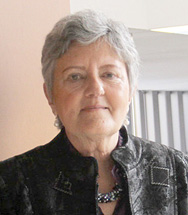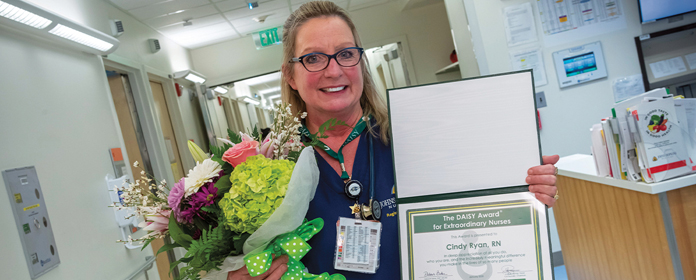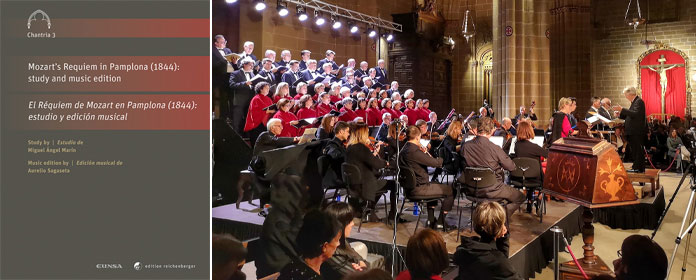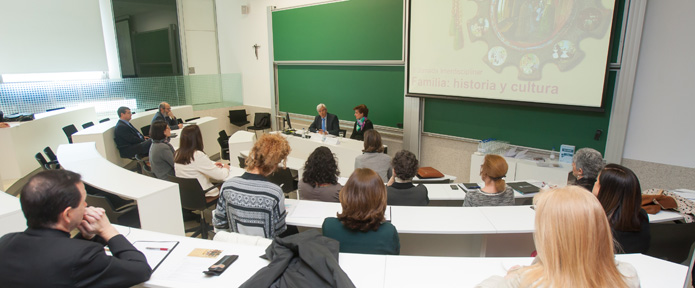"If a woman prefers to take care of her children and work at home, she should receive a family wage because she is performing an educational task."
María Antonia Bel Bravo, professor at the University of Jaén, intervened in the II interdisciplinary workshop on the family at the University of Jaén.

María Antonia Bel Bravo, professor of Modern History at the University of Jaén, intervened as speaker in the II interdisciplinary workshop on the family held at the University of Navarra. The activity was coordinated by the Institute for Culture and Society at the initiative of Office of the Vice President for Research.
What changes has the family undergone in recent decades?
In recent decades, the incorporation of women into the labor market has been one of the factors that has most influenced the evolution of the family. Women have become part of a market made solely and exclusively according to male parameters. Since then, she continues to take care of the house but with excessive schedules; a series of issues are demanded of her that she cannot reconcile.
What are the challenges facing the family today?
I would summarize them in three: reconciliation, economic incentives for children and maternal wages. Some of these proposals are already real in northern European countries.
The great challenge of today's society is the reconciliation of work and family life. This is a difficult issue, but one that must begin to be addressed through the topic of schedules. One proposal would be a split schedule where two women can share a position, one in the morning and one in the afternoon, so that they can devote the rest of the time to their families. Many hold their hands over their heads with propositions like this, but they are necessary.
What about family policies?
It is necessary to reward people who have children because, demographically, Spain is aging; the whole of Europe is aging. That is why I advocate a family wage: if a woman prefers to take care of her children and work at home, she should receive a family wage.
This is a controversial proposal because feminists believe that the family wage will encourage women to return to their homes as in previous times. However, I believe that women who want to stay at home must be able to do so and to do so, society and governments should provide them with a salary because, in the end, they are performing an educational task.
What new trends are observed in the family?
At the moment, the government is only concerned about getting out of the economic crisis, but it does not have the bull by the horns. The crisis is not only the balance of payments, but also the fact that every day citizens suffer great stress because they are unable to reconcile their work and family life. It is necessary to promote an important family policy.
Why can the family be considered a factor of social stability?
There are many thinkers of the Modern Age who think that a society cannot be better than the families that compose it. Some explicitly and others tacitly, but they all agree agreement that if the family does not work, neither does society. This is the fundamental topic of their criticisms.
The thinkers of this era defend that certain episodes such as the withdrawal of children in hospices or leaving women alone because men go to 'make the Americas' end up destabilizing society: women alone, abandoned or marginalized children... Therefore, one cannot claim a better society than the families that compose it.
What can we learn from the role the family has played throughout history?
History does not repeat itself, but it teaches us how to approach problems well. Everyone knows that a well posed problem is already half solved. Therefore, people who know history know how to solve problems.
Why is it important to reflect on the family in a workshop of research like this one?
agreement One of the greatest advantages of holding conference such as the family's is that it brings together people who work in the same fields of research on contact and, although they may not agree on everything, they can contrast opinions. This is always enriching.




